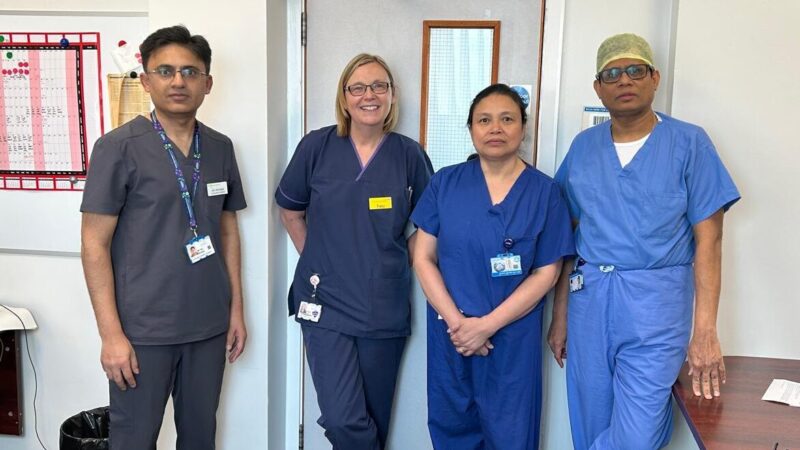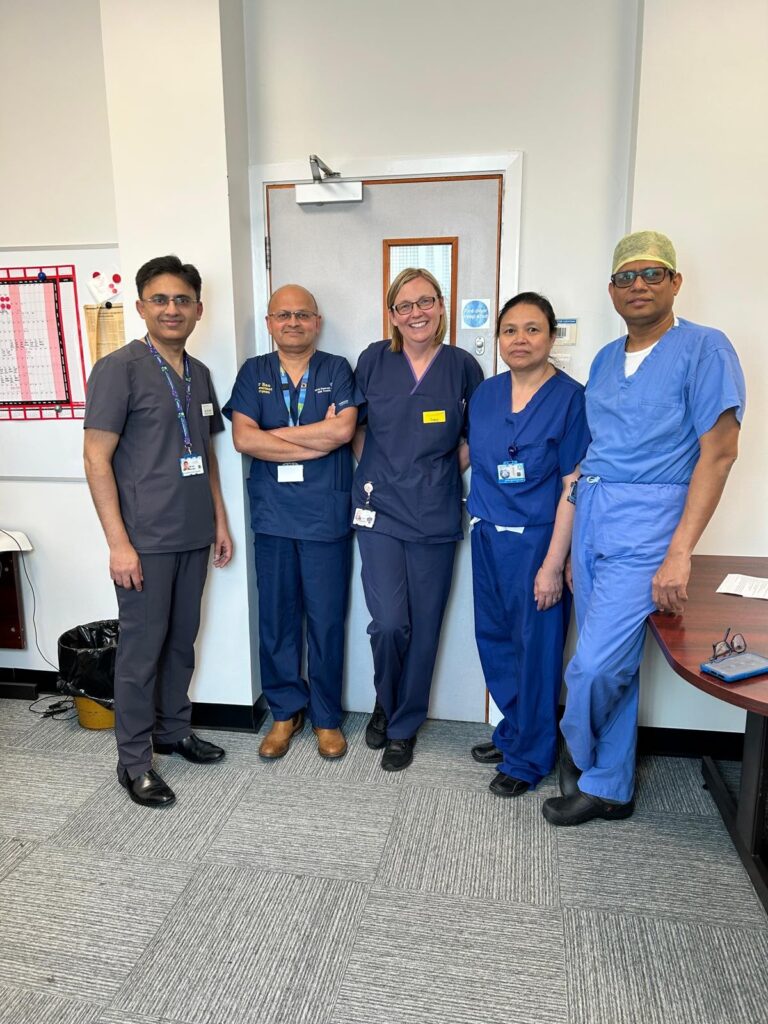
An NHS surgery team is helping patients with urgent gallbladder problems receive treatment sooner, after transforming how the service is run.
The general surgery team at the University Hospital of North Tees has redesigned how gallbladder operations are delivered.
Patients are now treated urgently after being admitted to hospital or within a few days, rather than waiting months for planned surgery.
Previously, many patients admitted with inflamed gallbladders – known as cholecystitis – were discharged on antibiotics and placed on a waiting list for surgery.
This carried risks – within 30 days, one in four patients were re-admitted with further episodes of gallbladder inflammation. Many more returned to hospital while waiting several months for their operation.
Most patients are now treated during their first stay in hospital or shortly afterwards.
Reducing hospital stays

The impact has been clear. The average hospital stay for cholecystitis has reduced from five days to three, compared with a national average of five days.
Mr Ish Ahmed, consultant upper gastrointestinal surgeon, said: “By prioritising urgent surgery within days, we reduce risks, shorten recovery and free up beds. National data shows this pathway is saving around 2,000 bed days every year.”
“The new pathway is consultant led, which means faster and safer care. It has also been helped by the expansion of the clinical team, including an upper gastrointestinal specialist nurse leading the pathway.”
The changes include four dedicated hot gallbladder operating lists each week, including one delivered in the regional surgical hub. This is in addition to more gallbladder operations on the emergency list by the on-call surgeon. The pathway is also supported by a weekly hot gallbladder clinic, nurse led triage, urgent pre-assessment and protected theatre time.
Investing in new equipment
New equipment has also been introduced, including a charity funded laparoscopic ultrasound machine and technology for bile duct exploration.
Upper gastrointestinal specialist nurse Valerie Villacastel said: “A lot of work goes into deciding how we treat each of our patients. This means liaising regularly with the patient and working closely with the surgical and wider healthcare team. Some patients need to be fast tracked for surgery, while others may need adjustments to their care – and I take the lead in making sure this happens.”
Mr Ahmed added: “This has only been possible thanks to the whole surgical, anaesthetic, pre-assessment, theatre and ward teams working together. The service continues to evolve, with plans for more day case emergency surgery, integration with the virtual ward, and support for patients to recover safely at home.”